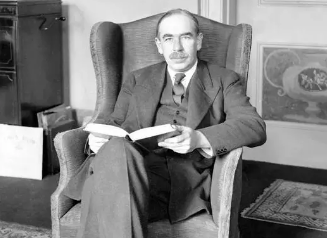Keynesianism is an economic theory that originated during the Great Depression of the 1930s. At that time, the global economy was in a severe recession and unemployment crisis, and governments around the world took a series of emergency measures to stimulate economic growth. Among them, British economist John Maynard Keynes proposed a series of theories and policy recommendations, which became one of the main ideas for governments to respond to the economic crisis at that time.

Specifically, the genesis of Keynesianism can be traced back to 1936, when Keynes published his book "The General Theory of Employment, Interest and Money". This book put forward a new ideological viewpoint, namely, stimulating economic growth through measures such as increasing public spending and reducing taxes to solve problems such as unemployment and economic imbalances. This ideological viewpoint received widespread attention and recognition and became one of the important ideas for governments to respond to the economic crisis at that time.
Over time, Keynesianism gradually developed into a complete economic theoretical system. During the economic recovery period after the Second World War, governments around the world began to widely adopt Keynesian policies and measures to promote economic growth and social development. For example, the New Deal in the United States and the Marshall Plan in Europe are typical representatives of Keynesian policies.
However, as time went on, Keynesianism also received some criticism and doubts. Some people believe that Keynesianism overemphasizes government intervention and regulation, which may lead to problems such as inflation and fiscal deficits. Therefore, in later economic theories, the status of Keynesianism was gradually replaced by other schools of thought.
In conclusion, Keynesianism is an important economic theory that originated during the Great Depression of the 1930s. Although its status in later economic theories has gradually been replaced, it still has important significance for the development and influence of modern economics.
Disclaimer: The above content is sourced from the internet and the copyright belongs to the original author. If there is any infringement of your original copyright, please inform us and we will delete the relevant content as soon as possible.
































